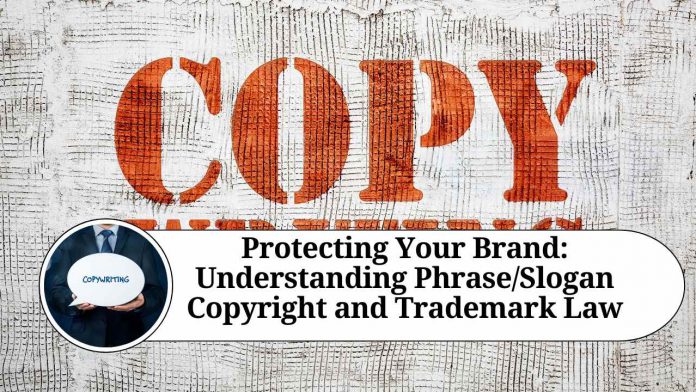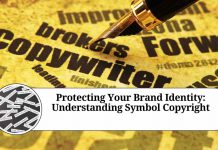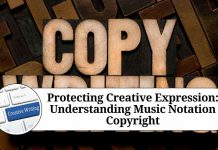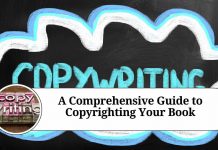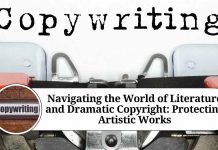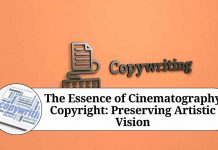In today’s world of marketing and advertising, phrases and slogans play a crucial role in promoting products and services. These catchy phrases can help build brand recognition and can be used to differentiate a company’s offerings from those of its competitors. However, with the widespread use of slogans and phrases, the issue of phrase/slogan copyright has become increasingly relevant.
A slogan is a short and memorable phrase that is used in advertising campaigns to represent a brand or product. Slogans are often used to convey a brand’s personality, values, or benefits. A slogan can be registered as a trademark if it is distinctive and has acquired a secondary meaning, indicating that it is associated with a specific brand.
Copyright law protects original works of authorship, including literary works, music, and artwork. However, a phrase or slogan may not be considered a work of authorship in the same way that a novel or a song is. In some cases, a phrase may be considered a trademark rather than a copyrightable work.
Trademark law protects symbols, names, and other distinctive marks that are used to identify a brand. Trademarks can be registered with the United States Patent and Trademark Office (USPTO) and provide legal protection against others using a similar mark that may cause confusion or dilution of the brand.
In order to register a slogan as a trademark, it must meet certain criteria. First, the slogan must be distinctive and not simply descriptive of the product or service being advertised. A slogan that is too generic or common cannot be trademarked. Second, the slogan must be used in commerce, meaning it is used in connection with the sale or advertising of a product or service. Finally, the slogan must not be confusingly similar to an existing trademark.
While copyright law may not protect a phrase or slogan in the same way as a trademark, there are instances where a slogan may be protected by copyright. For example, if a slogan is used in a creative work, such as a song or a movie, it may be protected as part of that work. Additionally, if a slogan is used in a written work, such as a book or article, it may be protected as part of that work.
In conclusion
The protection of phrases and slogans is primarily governed by trademark law. Trademarks protect a brand’s identity and are crucial for maintaining brand recognition and preventing confusion in the marketplace. However, copyright law may also provide some protection for slogans and phrases when they are used in creative works. As such, it is important for companies to carefully consider their use of slogans and phrases in advertising and to seek legal advice when necessary to ensure that their slogans are properly protected.
Other Related Blogs: Section 144B Income Tax Act
Frequently Asked Questions (FAQs)
Q. What is a slogan or a phrase?
A slogan or phrase is a short and memorable phrase used in advertising and marketing campaigns to promote a brand or product. It can be used to convey the brand’s personality, values, or benefits.
Q. Can a slogan be copyrighted?
In general, slogans are not protected by copyright law. However, they can be protected under trademark law if they are considered to be distinctive and are associated with a specific brand.
Q. What is the difference between copyright and trademark?
Copyright law protects original works of authorship, such as books, music, and artwork, while trademark law protects symbols, names, and other distinctive marks that are used to identify a brand.
Q. Can a slogan be trademarked?
Yes, a slogan can be trademarked if it is distinctive and has acquired a secondary meaning, indicating that it is associated with a specific brand. The slogan must also be used in commerce and must not be confusingly similar to an existing trademark.
Q. Can a company be sued for using a similar slogan to another company?
Yes, a company can be sued for using a similar slogan to another company if it is likely to cause confusion or dilution of the brand. This is known as trademark infringement.
Q. Can a slogan be used in a creative work, such as a song or a movie?
Yes, a slogan can be used in a creative work and may be protected under copyright law as part of that work.
Q. What should companies do to protect their slogans?
To protect their slogans, companies should consider registering them as trademarks with the United States Patent and Trademark Office (USPTO). Companies should also monitor the marketplace for any infringement of their trademarks and take appropriate legal action when necessary.
Q. What should companies do if they are accused of trademark infringement?
If a company is accused of trademark infringement, they should seek legal advice immediately. They may need to stop using the allegedly infringing slogan or make changes to it to avoid confusion with the original trademark. They may also need to pay damages to the trademark owner if the infringement is found to be intentional.

